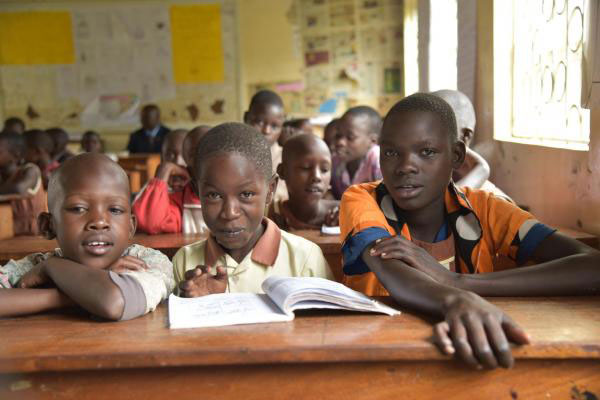Prime
What Covid-19 teaches Africa about investing in education

Investing in education is vital especially at critical times. PHOTO/UNICEF.
What you need to know:
- The journey towards an integrated, prosperous and peaceful Africa should start by recognising that we know our challenges and we have the solution.
If there is a universal lesson from the disruptive impact of Covid-19 pandemic in Africa, it is that we can no longer ignore the unprecedented learning crisis facing the continent, which is clouding Africa’s vision to bequeath a foundation for prosperous future generations.
The pandemic has revealed alarming inequalities in accessing inclusive and quality education, particularly affecting millions of vulnerable and marginalised children, such as the girl child and those with disabilities.
These inequalities within and across countries must be tackled urgently in order to guarantee the fundamental right to education for all children.
The pandemic has also exacerbated this learning crisis and highlighted challenges to education that have not been adequately addressed for far too long. Key among these challenges is the ever-increasing annual financing gap for education that is placing the future of millions of learners at risk.
These were among the key issues confronting Africa’s leaders as the Global Education Summit co-hosted by Kenya and the United Kingdom in London got underway last week.
Harsh realities
Importantly, the pandemic is a constant reminder that Africa’s vision for shared prosperity and inclusive growth is only realisable if countries equip their citizens with 21st century skills to thrive in an increasingly demanding and uncertain world.
The reality is that Africa’s huge youthful population can be a demographic dividend only if it is provided with quality education and appropriate skills.
The Summit launched a drive to raise at least $5 billion from the international community to boost financing education in the developing world over the next five years. This much-needed development assistance will be crucial to support national education systems to recover from the long-term impacts of the pandemic.
But since domestic spending remains the most important source of financing for education in Africa, the onus for closing the education financing gap rests on the shoulders of African governments themselves.
It is their responsibility to increase national budget allocations for education, to ensure funds are utilised equitably, efficiently and accountably, to forge new and innovative partnerships.
Need for action
African leaders must confront these challenges head on even as they contend with the economic strain that Covid is putting on national economies and budgets, the competing needs of other development sectors, and limited external support.
African leaders should further commit to ensuring equity in access to quality education, including making available resources reach the most marginalised children, especially girls.
Greater emphasis should be placed on improving learning outcomes in education systems by employing new techniques and proven methodologies, and by leveraging on technology to close the global digital divide.
Similarly, investments on education should aim at strengthening the capacities and improving the well-being of our teachers and recognising the instrumental role that they play in determining learning outcomes.
African leaders must also pledge to ensure efficient use of available resources for education by improving accountability and transparency in the education sector, addressing systemic inefficiencies, including high repetition and drop-out rates, and eliminating gaps in the optimal management and distribution of teachers.
The journey towards an integrated, prosperous and peaceful Africa should start by recognising that we know our challenges and we have the solution; all we need is the courage and commitment to administer the alchemy.




